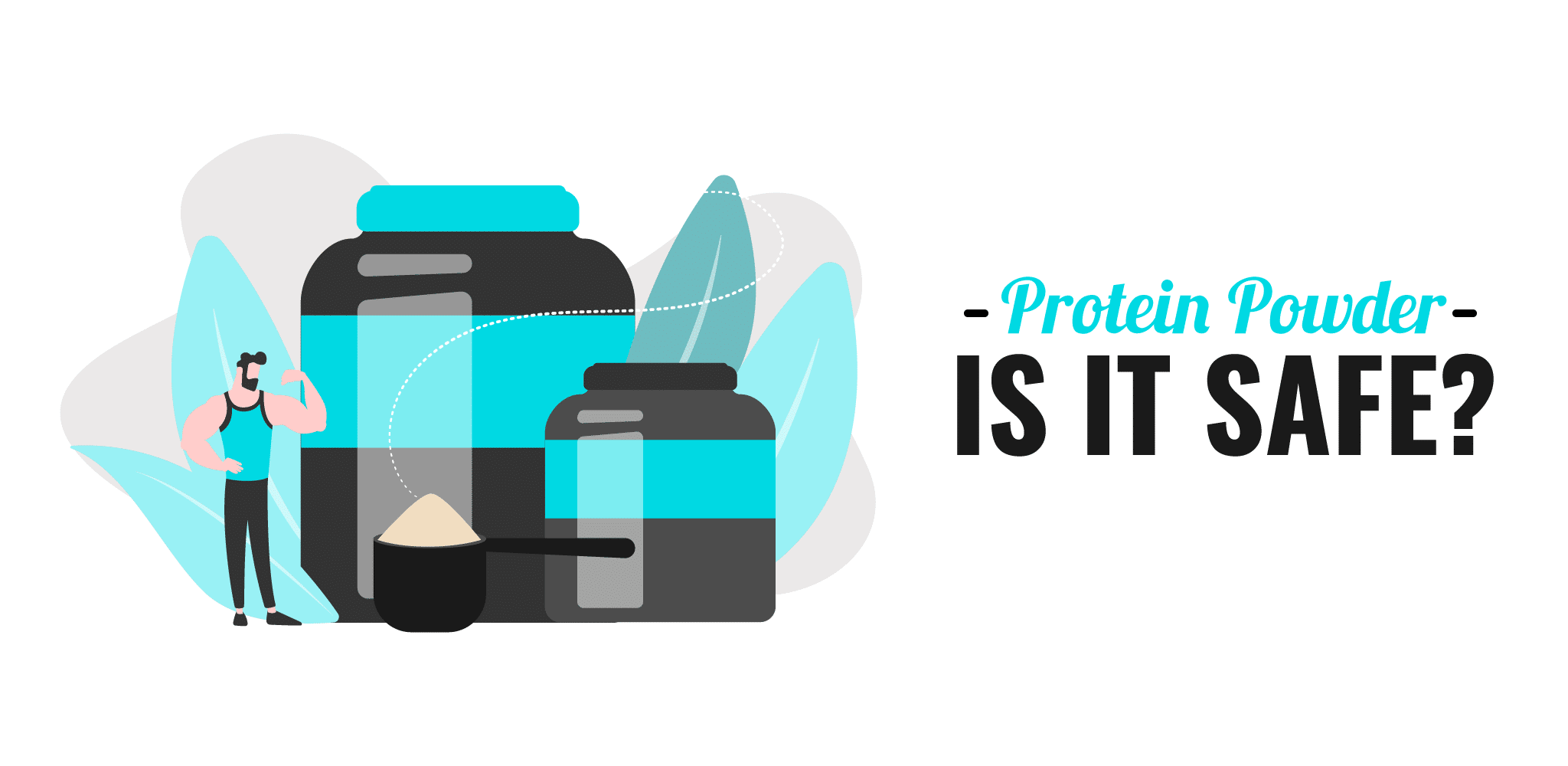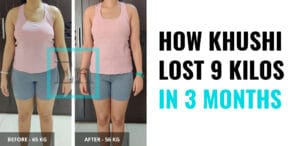Protein is essential for the body. All of us get some protein from our diets as most food contains protein. For example, even a potato contains 2 grams of protein but, speaking from experience, most of us simply don’t get enough protein. Fortunately, this can be remedied through the consumption of some protein powder.
This easy fix is, however, met with reluctance as people often cite safety and health concerns as reasons for not consuming it. The most common ones are as follows –
- “Protein powder is not natural so isn’t it bad for my body?”
- “Will it make me gain weight?”
- “Will I gain weight if I stop eating it later?”
- “Will protein powder damage my kidneys?”
Protein powder is not natural so isn’t it bad for my body?
People who believe this are committing a logical fallacy known as the ‘naturalistic fallacy’. This article by ethics.org explains the naturalistic fallacy really well, however, I’ll still give you a brief explanation –
When you claim something is natural and that anything unnatural is wrong, this is known as the naturalistic fallacy. In this case, eating protein from whole foods is considered to be natural while taking protein powder isn’t.
The fallacy here is when the following is concluded: “Since eating protein from supplements isn’t natural, it is bad for health because only natural foods are good for health.”
The problem here is equating ‘natural’ with ‘good’ and ‘unnatural’ with ‘bad’. We do many things that are unnatural on a daily basis but they aren’t necessarily bad. Like using a phone, driving a car, or wearing clothes. So, this conclusion should not be made for protein either.
Will it make me gain weight?
Many of my clients are initially worried that eating protein will lead to weight gain. But this is not true because weight gain will occur only if you are on a calorie surplus. Protein powders don’t put you on a calorie surplus and therefore don’t cause weight gain.
Will I gain weight if I stop eating it later?
Sometimes, I have to temporarily introduce protein powder in a client’s diet if they are trying to lose weight. This is because the client can’t meet their daily protein requirements by consuming regular food. Protein powder solves this problem by providing a good amount of protein without adding too many calories to your diet. If you stop eating it later, you won’t gain weight unless you start eating a calorie surplus again.
Besides, there is no physiological mechanism in your body that magically starts creating more fat as a sign of rebellion against your decision to quit eating protein powder.
Will protein powder damage my kidneys?
No, there is no evidence to suggest that consuming protein powder leads to a compromise in kidney function in normal people. One study found that eating a high protein diet (3.6g protein per kg of body weight) did not lead to a decline in kidney function. However, if you do have existing kidney issues, then please consult your doctor before you start taking protein or start following a high protein diet as this may worsen your kidney issues.
Getting Started
Now that you know protein powders are safe and you are warming up to the idea of them, let us cover a few basics on how to consume them:
Buy from a Well-known Company
To save money, you might consider buying from a not-so-well-known brand because they offer their protein powders at heavily discounted rates. But let me share a personal experience from having purchased an affordable protein powder.
I once bought soy protein from a local vendor in Pune as it was being offered at a much lower price than the market rate. The result of mixing it in water was a protein shake that was so thick that the spoon stood upright in it when let go of.
I am quite certain that it would have served as an excellent substitute for concrete in a building.
Start with One Scoop A Day
Follow one scoop a day for the first week. If you don’t face any digestive issues, you can continue consumption and even increase the measurement to two scoops a day if required. But if you do face any issues, you can try the following –
- Split the scoop into 2 half scoops and have both at different times during the day. For example, you can consume one during breakfast and the other during the evening snack.
- If the above method doesn’t work, then the issue might be with the protein itself. If you are consuming whey protein, then the issue might be lactose. In which case you will need to replace it with a plant-based protein option.
Best timings to take them
The best time to take protein powder depends on your fitness goals. Below I have listed the most common goals along with the timings best suited for that goal
- For Muscle Gain – If you are trying to gain muscle, then it’s best to consume pre- or post-workout.
- For Weight Loss – If you want to lose weight, then you should include protein in the meal where you tend to feel hungriest to help you stop yourself from overeating in that meal.
- For a Layperson – If you are someone who is simply trying to increase your protein intake and aren’t particularly aiming to lose weight or gain muscle, then you can include it during any meal during the day.
Types of Protein Powder
Animal-based
Animal-based protein powders are derived from sources such as milk, and egg albumin. There are many other sources but the best-known source is whey protein. In case you didn’t know, whey is a by-product of manufacturing cheese which is then processed into whey protein.
Plant-based
These are derived from sources such as soy, pea, and rice. You can take these if you are vegan (like me) or lactose intolerant (not like me). I generally prefer plant-based options because they do not involve animal cruelty or suffering.
Physiologically, animal protein is superior to plant protein, but this superiority is more important in the context of sports performance. I recommend plant protein to most of my clients for 2 reasons –
- Plant protein can provide the same effects as animal protein if taken in slightly higher doses.
- Animal protein includes animal cruelty in the production process. For example, since whey protein is dairy-based, cows and buffaloes are exploited in order to procure milk. You can read more about the animal cruelty involved in the dairy industry here.
Some of you might already know that I am vegan for ethical reasons. Therefore, I would like to promote a few plant-based protein powders which I often recommend to my clients:
- The Super Whey (I know what you are thinking but they also sell plant protein).
- Plix Protein
- IN2 Protein
- HealthKart BGreen
- Unived
- Olena
Conclusion
As long as you are buying protein powder from reputed companies you will be safe. Listen to your body; if you’re not feeling good, try cutting down or change brands. Always start with a sample sachet instead of buying a big bucket in the first go.
On a final note, I am not advocating that you take protein from supplements instead of regular food. Get as much protein as possible from whole foods. But if you are falling short then it is okay to take protein powder, provided you don’t have kidney issues.





4 Responses
Thank you so much for the very insightful information shared. Extremely helpful and has addressed all common myths and questions related to whey protein/ plant protein. Thank you again.
You’re welcome Priya and thank you for the comment!
Awesome Article! I have a doubt. Please address.
How is myfitfuel plant based protein powder?
It’s pretty cheap, should I trust the brand?
Hi Ayushi, glad to hear that you liked it! MFF is pretty good. I have never found any issues with them plus they also provide the data on their lab tests which makes them a bit more reliable. I’ve used their unflavored and flavoured pea protein and I liked it. Although I’m not sure if there is any adulteration that they do, the only way to find out would be to order your own lab test ;). Alternatively, you can also try The Super Whey’s plant protein, it’s the one I currently use and recommend to all my vegan clients because of its great taste! If you do end up purchasing it, use my code ELEMENT10 to get a 10% off.
Comments are closed.